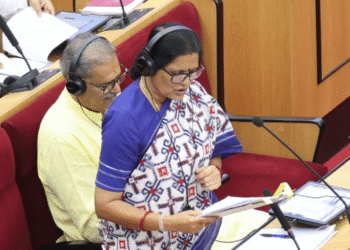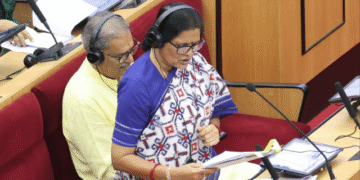Indian astronaut Shubhanshu Shukla has made history by becoming the nation’s first space farmer, successfully growing moong and methi seeds aboard the International Space Station (ISS).
His experiment, conducted during the final leg of the Axiom-4 mission, is a pioneering step in microgravity agriculture.
The seeds were placed in petri dishes, photographed, and stored in the station’s freezer to examine their germination process under zero gravity. This experiment, led by researchers from the University of Agricultural Sciences, Dharwad, and IIT Dharwad, aims to understand plant development beyond Earth and pave the way for sustainable farming in space.
“I am proud that ISRO could collaborate with top institutions to bring cutting-edge research to the ISS. It’s been a joy to serve as a bridge between researchers and the space station,” Shukla shared during an interaction with Axiom Space Chief Scientist Lucie Low.
Beyond legumes, the astronaut also explored microalgae cultivation, investigating their potential to produce food, oxygen, and biofuel for future interplanetary missions. He participated in multiple research domains, including stem cell development and astronaut cognition studies.
Upon return, the seeds will undergo genetic analysis and be cultivated over generations to identify traits suitable for future space farming. The insights could contribute to long-duration space missions, where growing crops on board may become essential.
Shukla’s scientific zeal marks a remarkable chapter in India’s growing presence in space biotechnology, putting indigenous agricultural research quite literally into orbit.




























